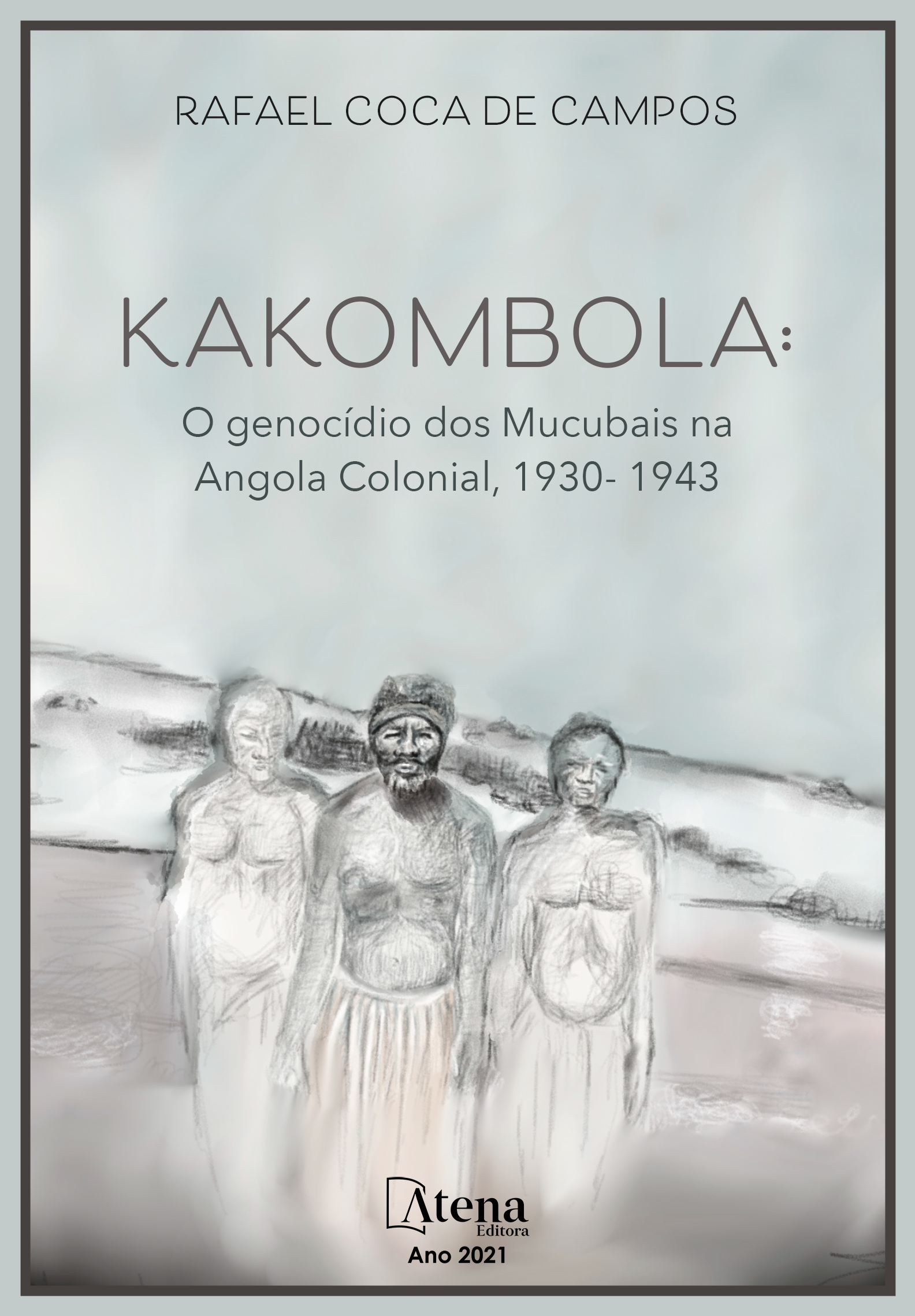
KAKOMBOLA: O GENOCÍDIO DOS MUCUBAIS NA ANGOLA COLONIAL, 1930- 1943
Este livro é sobre a kakombola, o genocídio dos pastores mucubais perpetrado pelo exército português entre finais de 1930 e 1943. Os pastores africanos mucubais estavam situados na porção sudoeste da então colônia portuguesa de Angola. A exiguidade dos recursos naturais e econômicos do sudoeste angolano fez com que, desde pelo menos a metade do século XIX, o gado das populações africanas se tornasse objeto de um projeto de ocupação e exploração econômica colonial. A partir de finais dos anos 1920, uma série de processos concorrem para a criação das condições de possibilidade para o extermínio dos pastores mucubais: a promulgação de um corpo normativo que destituía formalmente os africanos de qualquer acesso a direitos e os relegava a objeto de ações administrativas violentas; a criação de serviços de pecuária e veterinária que materializaram e institucionalizaram uma perspectiva econômica na qual a pastorícia africana era representada de maneira ambivalente, porém sempre sob a égide da ideia de primitivismo; a paranoia e insegurança de diversos agentes coloniais portugueses quanto ao policiamento da fronteira e aos episódios recorrentes de roubo de gado. Neste trabalho, argumenta-se que o genocídio dos mucubais, justificado pelo exército português como uma forma de submeter pastores rebeldes à autoridade invasora, remete a um processo muito mais profundo de construção das relações políticas e econômicas no sudoeste de Angola. A linguagem política e econômica segundo a qual os pastores africanos construíam relações significativas passava pela mobilização de modalidades distintas de circulação de gado. Dentre estas modalidades estava a razia, prática entendida pelos portugueses como roubo. A partir da análise de fontes primárias, é possível demonstrar que a razia e o roubo de gado, longe de serem simples práticas pastoris primitivas, foram estratégias incorporadas e mobilizadas por administradores e colonos, inclusive durante as operações de extermínio dos mucubais.
KAKOMBOLA: O GENOCÍDIO DOS MUCUBAIS NA ANGOLA COLONIAL, 1930- 1943
-
DOI: 10.22533/at.ed.663221201
-
Palavras-chave: Mucubais; História; Genocídio; Angola; Colonialismo
-
Keywords: Mucubais; History; Genocide; Angola; Colonialism;
-
Abstract:
This book is about the kakombola, the genocide of mucubal herders perpetrated by the Portuguese army between the end of 1930 and 1943. The mucubal were located in the southwestern portion of the then Portuguese colony of Angola. The scarcity of natural and economic resources in southwest Angola meant that, since at least the middle of the 19th century, the cattle of African populations became the object of a project of colonial occupation and modern economic exploitation. From the late 1920s onwards, a series of processes contributed to the creation of conditions of possibility for the extermination of mucubal herders: the promulgation of a series of laws that formally deprived Africans of any access to rights and subjcted them to administrative violence; the creation of livestock and veterinary services that materialized and institutionalized an economic perspective in which African pastoralism was represented in an ambivalent way, but always under the aegis of the idea of primitivism; the paranoia and insecurity of several Portuguese colonial agents regarding border policing and the recurrent episodes of cattle theft. In this work, it is argued that the Mucubal genocide, justified by the Portuguese army as a way of submitting rebellious herders to the invading authority, refers to a much deeper process of building political and economic relations in southwestern Angola. The political and economic language according to which African herders built significant relationships involved the mobilization of different modalities of cattle circulation. Among these modalities was razia, a practice understood by the Portuguese as theft. Based on the analysis of primary sources, it is possible to demonstrate that raiding and theft of cattle, far from being simple primitive pastoral practices, were strategies incorporated and mobilized by administrators and settlers, including during the genocidal operations.
-
Número de páginas: 173
- Rafael Coca de Campos


